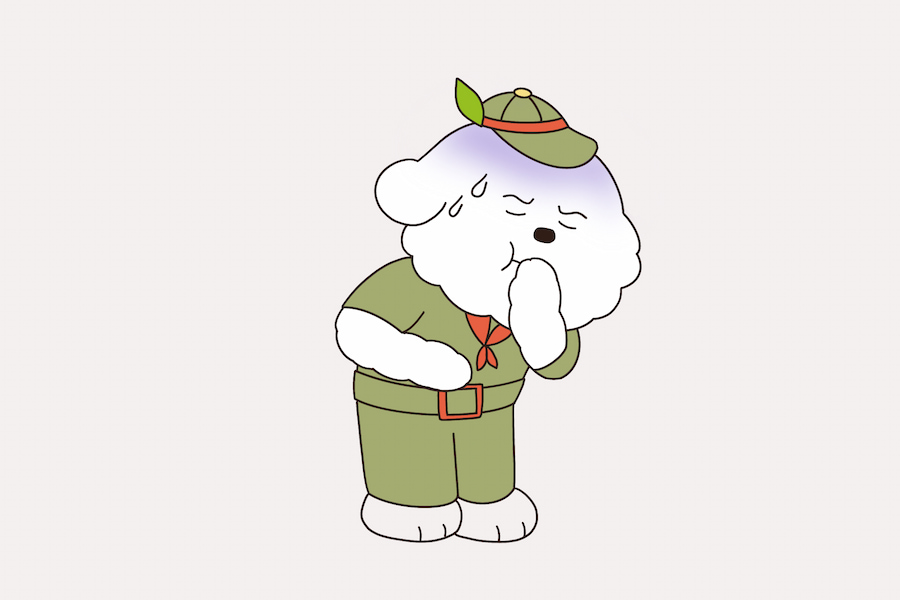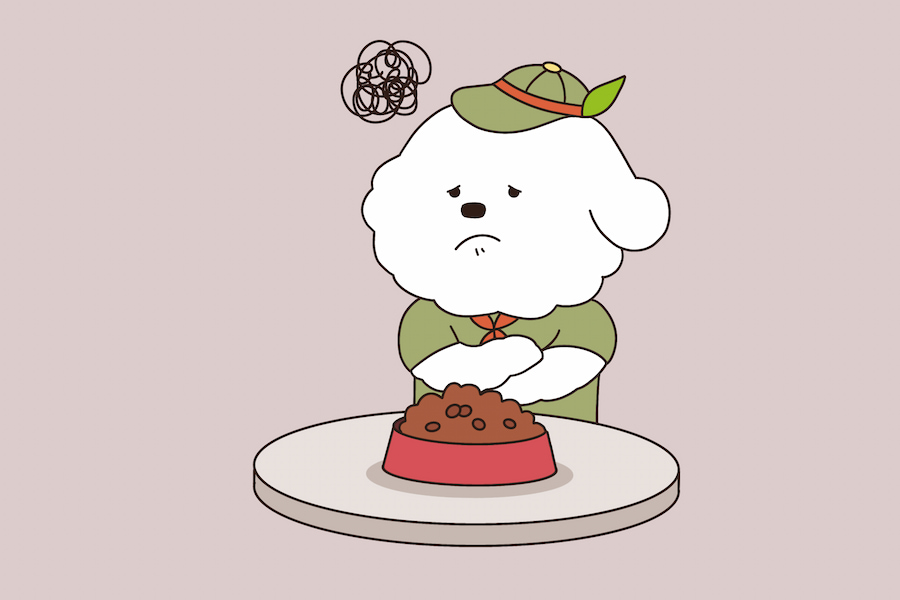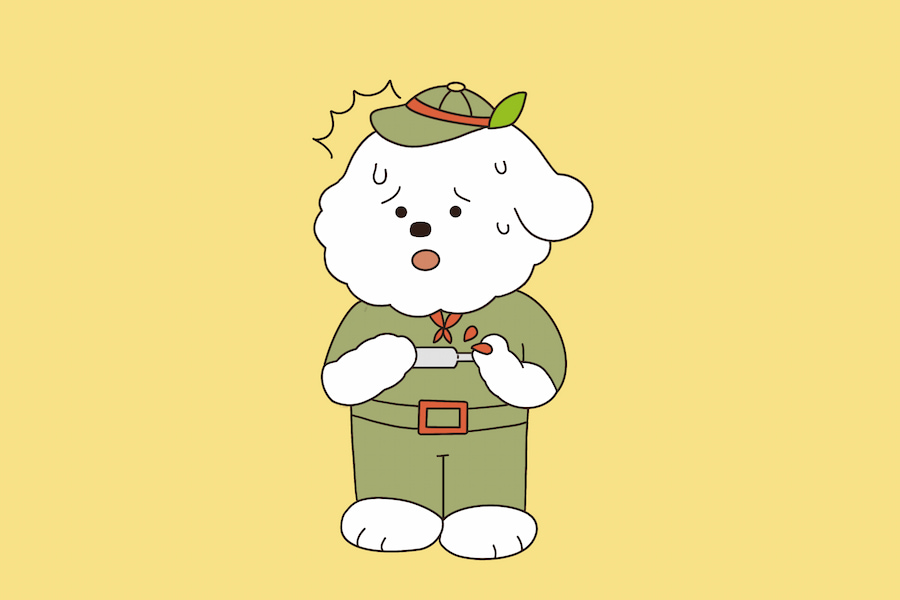You and your pet are playing, and then your bubbly dog may feel drained or uncomfortable and manifest itself. You became apprehensive and said to yourself, this must be indigestion, which humans and dogs go through.
But, you can make your dog feel better or healthy soon if you take good care of them. Although easy to become irritated over, indigestion is not a severe problem. It can be alleviated using basic comforts like a belly rub or changing their food to better digestible products.
In this article, you will learn about dog indigestion – what it is, how you can recognize it, what might be causing it, and what may help. Then, without further discussion, let’s get started so your dog can enjoy every meal without tummy troubles!

What is Dog Indigestion?
Dog Indigestion or dyspepsia refers to a situation whereby the dog’s stomach does not function as it should in the digestion process of food consumed by the particular dog. This might make such individuals feel uneasy; besides, they might be greasy, swollen stomachs, nausea, or other stomach complications.
It may be due to eating a lot, eating the wrong meal, eating too quickly or even because of stress.
If these signs are noticed early enough, such complications can be prevented, and your dog will live a healthy and happy life.
Symptoms of Dog Indigestion
As you might expect, stomach problems are a typical problem that all dog owners encounter.

According to Nationwide Pet Health Insurance, the fifth and sixth most frequent reasons for seeing the veterinarian were diarrhea/intestinal disturbance and vomiting/upset stomach.
Several apparent signs of dog indigestion accompany common stomach issues. These consist of:
Weight Loss
Your dog’s food will be affected if they have stomach pains, mainly if the issue lasts. Your dog may initially struggle with eating itself, frequently choking or hacking in an attempt to get the food down. Your dog can stop eating as much or lose interest in food if the problem persists. This will lead to noticeable weight loss over time.
Vomiting/Diarrhea
The body’s aggressive attempt to eliminate the irritating substances is the most noticeable and disagreeable indication that your dog’s stomach is upset.
Passing Gas
Dogs frequently flatulate; some breeds are far more gassy than others. However, excessive farts can be a sign that your dog’s delicate stomach is attempting to release pressure.
Bad Breath
Your dog’s breath will smell bad if they vomit, choke back bile, or have too much stomach acid. It may not typically smell like roses, but it has a powerful, acidic smell.
Behavior Change
Your dog is probably experiencing discomfort and low energy levels due to weakness brought on by poor digestion if they are normally active but start acting strangely, mainly if their behavior is defined by lethargy.
What Causes Dog Indigestion?
Dog indigestion can be triggered by a variety of factors. Understanding these causes can help prevent future episodes and keep your pup’s digestive system healthy. Here are some common causes of dog indigestion:
Overeating
When dogs consume too much food in one sitting, their digestive system can become overwhelmed, leading to indigestion.
Eating too quickly
Gulping down food too fast can result in swallowing excess air and undigested food, causing bloating and indigestion.
Abdominal acid production
Both human and canine stomachs use this powerful chemical to help digestion and break down food into nutrients and wastes when the body is functioning correctly. Conversely, indigestion happens when your dog’s stomach begins to release too much acid.
Food intolerance or allergies
Some dogshave food allergies to specific ingredients in their food, which can trigger digestive issues.
Sudden diet changes
Switching your dog’s food abruptly without a gradual transition can upset their stomach.
Stress or anxiety
Emotional distress can impact digestion, leading to upset stomachs and indigestion.
Ingesting non-food items
Dogs sometimes eat things they shouldn’t, like grass, toys, or other inedible objects, causing digestive upset.
Stomach inflammatory diseases
Vomiting may result from the stomach muscles contracting. Your dog will likely get over it on its own once you’ve taken it through a few days of fasting and refeeding alongside some prescription anti-vomiting medicines if necessary.
Inflammation of the intestine
This also spurs contractions of the intestinal muscles, which hastens the movement of the stomach digest to the various parts of the system. This does not give the fluids enough time to be absorbed back into the intestines. So, it causes diarrhea.

By identifying the cause, you can take steps to prevent indigestion from recurring in your dog.
How to Treat Dog Indigestion?
Supportive care, medication, and dietary adjustments manage dog ingestion. The following are some practical methods to assist in easing your dog’s discomfort:
Dietary Adjustments
If you want to feed your dog, give it a plain diet. The digestive tract can restore function and is not complicated by other foods with this simple diet.

Basic recommended foods include plain white rice and dried pollock.
Hydration
Dog water should always be fresh as they drink from it with as much frequency as they do food. One must ensure they take as many fluids as possible, especially if they are vomiting or experiencing diarrhea.
Fasting
Those are mild, and if the cases are not very severe, you can consider short fasting by not feeding your dog for 12- 24 hours. Fasting can help your dog’s digestive tract recover. Gradually bring food back into the patient after the fast, starting with only small portions of a plain diet.
Medication
Antacids and over-the-counter drugs can help calm an upset stomach. Before giving any medication, though, by speaking with your veterinarian, ensure it’s safe and suitable for your dog’s particular circumstances.
Vet Visit
You should consult your veterinarian if your dog’s indigestion persists or worsens. They can treat certain diseases and exclude other ones.

LeeAndPol’s dried pollock is completely desalted, making it light, easy to digest, and a great choice for dogs with digestive issues!

How to Help Your Dog’s Indigestion with Massage
Massage can effectively relieve dog dyspepsia by easing discomfort and stimulating digestion. Here’s how to gently massage your dog for indigestion relief:
- Create a Calm Environment: Find a calm, comfortable location where your dog feels as safe as possible. Eliminate background noise and, if necessary, play classical music or spritz some skin scents.
- Start Slowly: When engaging your dog, use only light touches and soft-spoken words to calm the animal down.
- Focus on the Belly: Rub the abdomen of your dog with your palm in clockwise and anticlockwise circular motions until you reach the ribs. This assists in the elimination of gas and proper digestion.
- Apply Gentle Pressure: After 5-10 minutes, gently pat the sides of the abdomen, imitating peristalsis – sidewards movements with the palm.
- “I Love You” Technique: Draw the letters “I,” “L,” and “U” on your dog’s belly using gentle strokes. This method can further stimulate digestion.
- End with Gentle Strokes: Finish by softly stroking your dog’s sides and back to enhance relaxation.
- Observe Reactions: Pay attention to your dog’s body language. Stop if they seem uncomfortable.

Regular massages can improve digestion and deepen your bond with your dog.
What Food is Good for Dogs with Indigestion?
For dogs suffering from indigestion, some meals can be helpful to make digestion easier and to provide the necessary nutrients for the dog.
These foods may help your dog if they are experiencing digestive issues:
- Dried Pollock: Dried Pollock is best for dogs with indigestion because it is a low-fat, high-protein, easily digestible food. So, dried pollock is good for obese dogs that need to lose weight. And dried pollock is rich in nutrients such as calcium, iron, omega-3, various minerals, and vitamins. It makes not only a good source of nutrition but also helpful for patellar luxation, kidney, heart, and liver health.
great source of Omega-3 Indigestion, especially in dogs, is very much handled by this and hence is a treat. - Apples: Apples are rich in fiber and thus help you have a healthy bowl. It will be beneficial to emphasize that the seeds and the core should be removed before offering them.
- Carrots : Carrots are easy on the tummy and increase the vitamins and fiber the body needs.
- Blueberries: Blueberries are delicate fruits that should only be eaten occasionally despite their high antioxidant content.
- Kabocha squash: Kabocha squash will support the health of your dog’s digestive tract because this vegetable is high in fiber.
- Mangoes : Mangoes aid in digestion and are rich in vitamins A and C.
- Strawberries: Strawberries may be a good food for a healthy digestive system because it have high fiber and antioxidant content.
- Ripe Persimmons: Ripe Persimmons are good for digestion as they contain good fiber. Don’t forget to use them when they are ripe, and without seeds, it is important.
- Pineapples: Pineapple is rich in bromelain, an enzyme believed to help digestion, but the stew is only fed to the dogs sparingly, not to worsen their stomach.
- Bananas : Lastly, bananas include potassium, which helps soothe nausea. They also aid when the stomach is irritated.

LeeAndPol combines dried pollock with freeze-dried fruits and vegetables, which is good for digestion to create the perfect homemade dog treat for dogs with sensitive stomachs!
Conclusion
Dogs with ingestion issues may feel uncomfortable but can recover quickly with the right care and attention. Pay attention to their symptoms, get advice from your veterinarian if needed, and feed them things that aid in digestion, such as bananas and dried pollock.
There are various methods to alleviate their discomfort, ranging from mild abdominal massages to dietary modifications.
With these steps, you’ll help your dog feel better and stay healthy!
FAQ
Most Indigestions are improve within 24 to 48 hours if the intervention includes fasting, taking foods that are easily digested and plenty of water. But if they last long past this, it would be wise to call your vet.
Yes, your dog may have indigestion as a result of stress and anxiety that upsets their digestive system. Improving their digestion can be achieved by addressing the underlying source of their stress.
Yes, but only with your veterinarian’s blessing. Certain drugs are safe for dogs in specific dosages, but you should always check with your veterinarian first.



